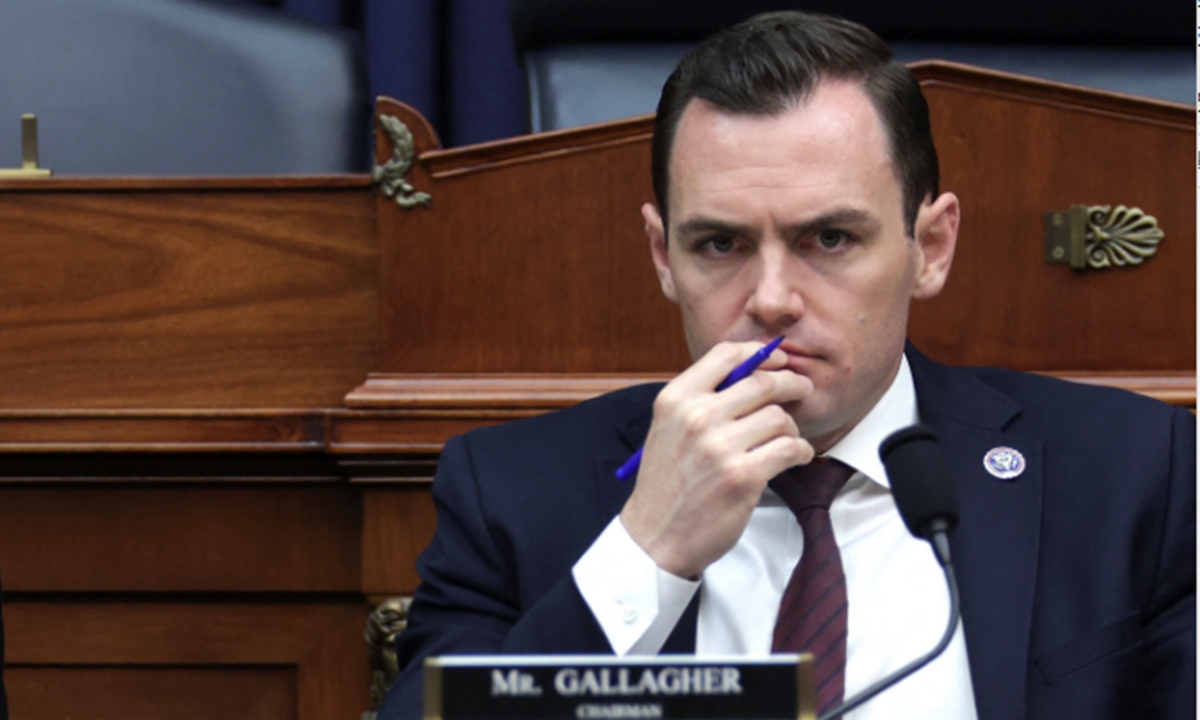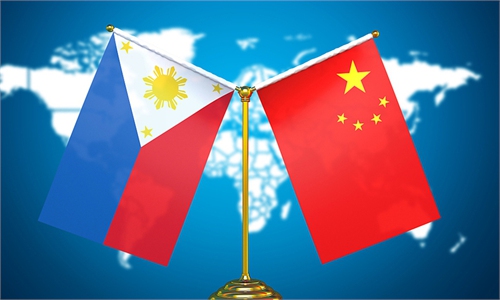House select committee on China pushes war game over Taiwan with insidious purpose

Mike Gallagher (R-WI)
The US House Select Committee on Strategic Competition between the US and the Chinese Communist Party (CPC) conducted an unusual war game on a cross-Taiwan Straits war with Washington think tank the Center for a New American Security. Its superficial conclusion is that nobody wins when deterrence breaks down. All sides will pay a high price, but at the same time hide a sinister purpose.
This war game was conducted behind closed doors on Capitol Hill on April 19 and reportedly lasted all night. In the simulation, lawmakers played the role of the Blue team while think tank members played the Red team (representing Chinese mainland). The general process was as follows: The Taiwan authorities made a "declaration of independence," the Chinese mainland made strong reaction, and the People's Liberation Army (PLA) deployed its forces. In the event that the Taiwan authorities refused to compromise, the PLA implemented a de facto blockade of the island of Taiwan. Finally, the war involved US and Chinese satellites, space weapons, drones, submarines, ground forces, warships, fighter squadrons, cyber warriors, communication experts, bankers, finance department officials and diplomats.
The war game appears to have been somewhat chaotic, with many uncertain factors and some vague conclusions. These include the PLA's use of missiles to attack Taiwan, as well as the US military bases in Japan and Guam. In the first wave of the conflict, hundreds or even thousands of American soldiers were reported to have been killed or injured, while losses on the side of the PLA and Taiwan were likely even greater. US' allies refused to participate in the war, remaining neutral and leaving the US to fight alone. It is not clear from several US media reports that the war game offers a key conclusion about who won and who lost.
The committee chairman Mike Gallagher said, "we are well within the window of maximum danger for a CPC invasion of Taiwan, and yesterday's war game stressed the need to take action to deter CPC aggression and arm Taiwan to the teeth before any crisis begins.''
The war game has been reported by multiple mainstream media outlets in the West. On the surface, it appears to remain objective and does not draw a conclusion such as "the US and Taiwan jointly defeat the PLA," claiming instead to prevent any conflict from occurring. However, it encourages the US to strengthen its military intervention in the Taiwan Straits and clearly aims to encourage the Taiwan authorities to pursue "independence."
Because first, this war game has a directional assumption, that is, the US military will fight to "defend Taiwan" when the PLA solves Taiwan question by force. This is the US policy assumption most needed by the Taiwan authorities. As we all know, the US has always maintained strategic ambiguity on the issue of whether to "defend Taiwan militarily," neither saying that it will do so, nor denying that possibility. The overall goal of the various current policies of the Taiwan authorities is to drag the US military into the potential conflict and bind the US militarily to "Taiwan independence" forces.
Second, a realistic policy push of war game is to require the US to fully arm Taiwan, including preparing sufficient long-range missiles for a possible war across the Taiwan Straits. Whether the US helps Taiwan produce long-range missiles or directly sells such offensive weapons to Taiwan, it is absolutely unacceptable to the mainland, which will directly lead to a military crisis across the Taiwan Straits. If the war game puts the promotion of realistic policies on providing large-scale offensive weapons to Taiwan, then its function is by no means to avoid a war in the Taiwan Straits, but to provoke a war there.
The US has hyped a lot in recent two years that the PLA will attack Taiwan before 2027. This assumption originally came from an answer of Philip Davidson, a former commander of the US Indo-Pacific Command, at a congressional hearing in March 2021. He warned of a potential Chinese attack against Taiwan by 2027. Davidson later explained that he wanted to emphasize to lawmakers that "China could attempt to take control of Taiwan by the end of the decade." But then there were all sorts of talk about 2027, 2025, or other timetables, and Davidson argued that paying attention to a specific date would not be helpful for the crisis that will emerge in the next decade. However, 2027 has been widely hyped in American public opinion as the "Davidson window," and the abovementioned war game on Capitol Hill is also driven by this timetable.
The war game on Wednesday also formed a special "warning" for US companies. Gallagher claimed that the business community is not taking the threat of a Taiwan crisis seriously enough. Some of them believed that the chance of a Taiwan conflict was "near-zero" and said "this is naive." Obviously, one of the purposes of the war game is to undermine the confidence of US investors in China.
This war game shows American lawmakers are really good at maneuvering. They want to advance their own agenda, including increasing arms sales to Taiwan, weakening the economic relationship between China and the US and further increasing the mutual hostility between the two major countries. So they came up with such a war game, in a bid to attract a lot of attention, frighten US society, and at the same time, earn a reputation of wanting to avoid military conflicts.
The author is a commentator with the Global Times. opinion@globaltimes.com.cn



